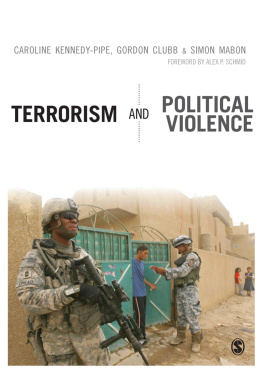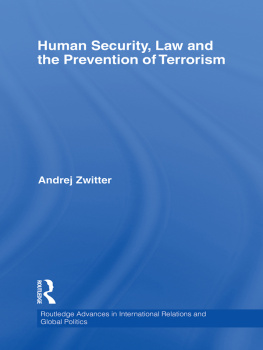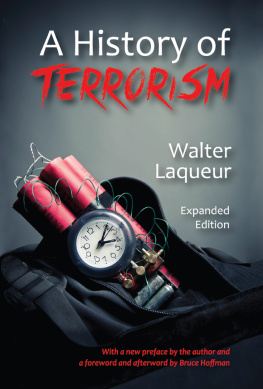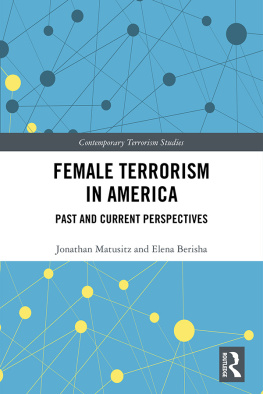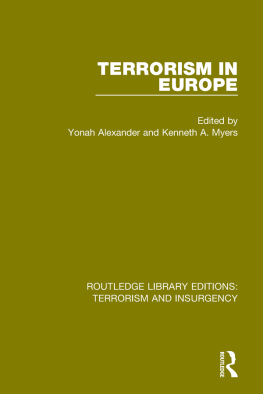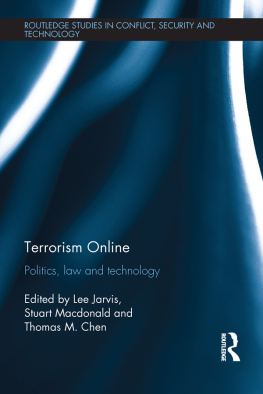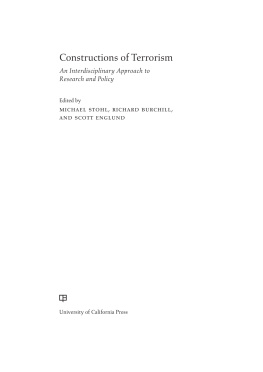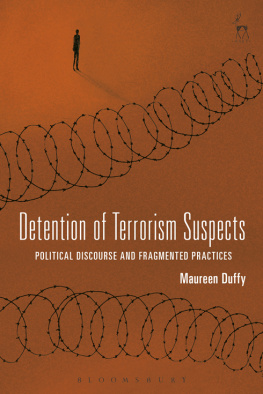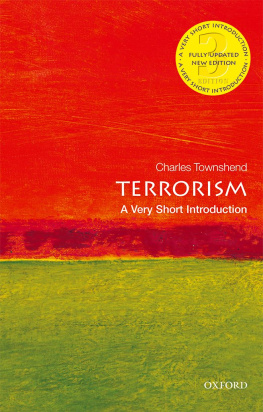
Freedom and Terror
This book examines reason and unreason in the legal and political responses to terrorism.
Terrorism is often perceived as sheer madness, unreasonable use of extreme violence and senseless, futile political action. These assertions are challenged by this book. Combining traditional thought (by Kaplan) on reason and unreason in terrorism with empirical explorations of postmodern terrorism and its use of communication platforms (by Weimann), the work uses interdisciplinary and cross-disciplinary dimensions to provide a multidimensional picture of critical issues in current politics and a deeper examination of their implications than previously available.
The book looks at various aspects of modern politics, from terrorism to protest, from decision-making to political discourse, applying the perspective of philosophical thought. To do so, political issues and actions are examined by using concepts such as reason, emotions, madness, magic, morality, absolutism, extremism, psychopathology, rationality and others. The analysis is rooted in theories and concepts derived from history, philosophy, religion, art, sociology, psychology and political science.
This book, which was mostly written by the late Abraham Kaplan, an American philosopher, and edited and updated by Gabriel Weimann, will be of much interest to students of political violence/terrorism, philosophy, war and conflict studies, and political science in general.
Abraham Kaplan (19181993) was a leading American philosopher and author of six books.
Gabriel Weimann is a Professor of Communication at the Department of Communication at Haifa University, Israel, and the School of International Service (SIS) at the American University, Washington, DC.
Series: Contemporary Terrorism Studies
Understanding Terrorist Innovation
Technology, tactics and global trends
Adam Dolnik
The Strategy of Terrorism
How it works, why it fails
Peter Neumann and M.L.R. Smith
Female Terrorism and Militancy
Agency, utility and organization
Edited by Cindy D. Ness
Women and Terrorism
Female activity in domestic and international terror groups
Margaret Gonzalez-Perez
The Psychology of Strategic Terrorism
Public and government responses to attack
Ben Sheppard
The De-Radicalization of Jihadists
Transforming armed Islamist movements
Omar Ashour
Targeting Terrorist Financing
International cooperation and new regimes
Arabinda Acharya
Managing Terrorism and Insurgency
Regeneration, recruitment and attrition
Cameron I. Crouch
Religion and Political Violence
Sacred protest in the modern world
Jennifer L. Jefferis
International Terrorism Post 9/11
Comparative dynamics and responses
Edited by Asaf Siniver
Talking to Terrorists
Making concessions to armed groups
Carolin Goerzig
Freedom and Terror
Reason and unreason in politics
Abraham Kaplan and Gabriel Weimann
Freedom and Terror
Reason and unreason in politics
Abraham Kaplan and Gabriel Weimann

LONDON AND NEW YORK
First published 2011
by Routledge
2 Park Square, Milton Park, Abingdon, Oxon OX14 4RN
Simultaneously published in the USA and Canada
by Routledge
270 Madison Avenue, New York, NY 10016
Routledge is an imprint of the Taylor & Francis Group, an informa business
This edition published in the Taylor & Francis e-Library, 2011.
To purchase your own copy of this or any of Taylor & Francis or Routledges collection of thousands of eBooks please go to www.eBookstore.tandf.co.uk.
2011 Abraham Kaplan and Gabriel Weimann
The right of Abraham Kaplan and Gabriel Weimann to be identified as authors of this work has been asserted in accordance with sections 77 and 78 of the Copyright, Designs and Patents Act 1988.
All rights reserved. No part of this book may be reprinted or reproduced or utilized in any form or by any electronic, mechanical, or other means, now known or hereafter invented, including photocopying and recording, or in any information storage or retrieval system, without permission in writing from the publishers.
British Library Cataloguing in Publication Data
A catalogue record for this book is available from the British Library
Library of Congress Cataloging-in-Publication Data
A catalog record has been requested for this book
ISBN 0-203-83120-9 Master e-book ISBN
ISBN13: 978-0-415-60598-4 (hbk)
ISBN13: 978-0-203-83120-5 (ebk)
Acknowledgments
This book could not have been published without the contributions of many individuals. First is my late co-author and colleague, Professor Abraham Kaplan. As his former student Professor Carl Cohen described him:
Kaplan was an extraordinary man. He was a penetrating thinker and a superb teacher whose breadth of learning was truly awesome. His rich command of the history of philosophy, of drama and poetry and biography, of the scriptures of the great religions, and of the methods and achievements of the sciences too, was nothing short of stunning. Reflections of that very great learning are to be found throughout his writing, as also in the book now in hand.
It was Dr. Iona Kaplan who brought me that pile of papers, written by her late husband; she knew already then, I believe, that I would be magnetized by the content, its depth and richness. Then, her daughter, Jessica Kaplan, followed: she trusted me and my work, knowing that I would do my best to honor her fathers work and ideas.
I was assisted, both at the University of Haifa, Israel, and the School of International Affairs (SIS) of the American University, Washington, DC, by numerous colleagues. Many of these colleagues and friends are to be thanked for their support, advice, and encouragement. I will name only a few: Professor Louis Goodman (Dean, SIS), Professor Nanette Levinson (Director of the International Communication Program at SIS), Professor Bruce Hoffman from Georgetown University, Professor Elliott Milstein, Professor Yoram Peri, Josephine and Rami Levi, Gail and Yash Shirazi, and many others.
This research project was carried out with the help of several Research Assistants. One of them, who worked with me at SIS for almost two years on this project, deserves my appreciation for his contribution and involvement: Mr. Jonathan Kennedy, a devoted, resourceful, and bright young scholar. The manuscript benefitted from the skillful work of Liz Fauteux. I also wish to express my appreciation and gratitude to the anonymous reviewers for their excellent suggestions and comments, and to Andrew Humphrys, my editor at Routledge, and Rebecca Brennan, his Senior Editorial Assistant.


